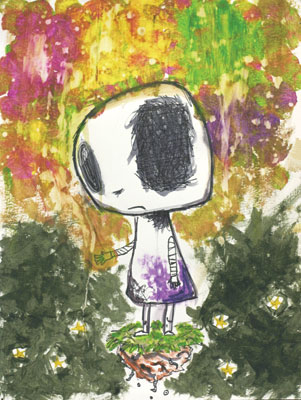All Nonfiction
- Bullying
- Books
- Academic
- Author Interviews
- Celebrity interviews
- College Articles
- College Essays
- Educator of the Year
- Heroes
- Interviews
- Memoir
- Personal Experience
- Sports
- Travel & Culture
All Opinions
- Bullying
- Current Events / Politics
- Discrimination
- Drugs / Alcohol / Smoking
- Entertainment / Celebrities
- Environment
- Love / Relationships
- Movies / Music / TV
- Pop Culture / Trends
- School / College
- Social Issues / Civics
- Spirituality / Religion
- Sports / Hobbies
All Hot Topics
- Bullying
- Community Service
- Environment
- Health
- Letters to the Editor
- Pride & Prejudice
- What Matters
- Back
Summer Guide
- Program Links
- Program Reviews
- Back
College Guide
- College Links
- College Reviews
- College Essays
- College Articles
- Back
Stop the Stereotypes
Depression is a growing crisis on our planet today. Roughly 350 million people from all ages, suffer from depression. Over 8% are adolescents and nearly 20 million Americans suffer from depression. Out of those people, I am one. I speak for all when I say that the element that made depression worse, was the stereotypes. Stereotyping is a part of human nature and is hard to control. Just because it is hard, doesn’t mean you can stop it. I stand in front of you today not to bore you with my statistics but to enlighten you on how you can make a change by taking simple steps.
At the age of 13, I went to a treatment hospital for my depression. I spent 6 days without television, without electronics, without music. Just groups, medication and a deck of playing cards. I was diagnosed with major depression, an anxiety disorder and impulse control disorder. When I found out I had these my first thought was “man I have a lot of problems.” But then I took a step back and realized how big this was. I could make a change. I could help someone. I could save someone’s life. By sharing my story and letting people know how I overcame it, I could help someone who was suffering like I was. I did not tell you my story to make you feel pity for me and to change your ways when you are around me, in fact I would appreciate the exact opposite. I told my story to relate to people and be able to help. I am giving all the help I can, but sometimes that is not enough. I need you. As Colin Powell once stated “None of us can change our yesterdays, but all of us can change our tomorrows.” This quote speaks directly to my topic. You cannot change what you did in the past, but you can always change what you do in the future.
Although there are many steps you can take to be less stereotypical, there are a few I would like to talk about now. One step you could take to stop stereotyping is to simply find something positive about that person. Instead of jumping to conclusions, find something you admire about them.
Another step to take is to stop stereotypes in its tracks. If someone is beginning to stereotype, let him or her know that they are. If you show them, they will show others. Before you know it our entire school is filled with non-judgmental people.
The third simple step to take to stopping stereotyping is to purely get to know the person. Invite an out-of-sorts neighbor over for dinner or ask a new student to hang out with you at a basketball game. These steps can make huge difference, not only in your life, but also in someone else’s.
So I ask as I finish this speech, you take in my words. Remember you don’t know everyone’s story. As C.M.H once put it “Even a white rose has a black shadow.”

Similar Articles
JOIN THE DISCUSSION
This article has 0 comments.
